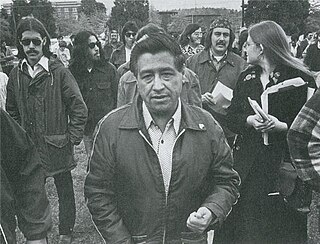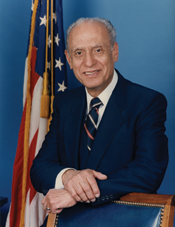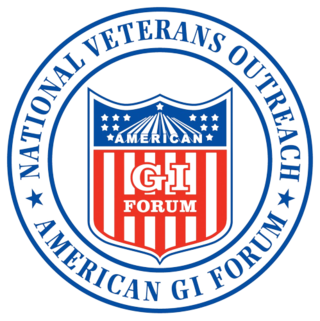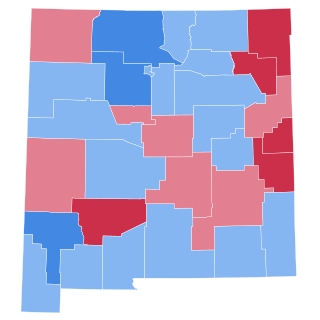Related Research Articles

Felix Z. Longoria was an American soldier from Texas, who served in the United States Army as a private. He died during World War II and was buried at Arlington National Cemetery after veterans supported his cause in a dispute over his funerary arrangements.

The National Association of Latino Elected and Appointed Officials (NALEO) is the 501(c)(4) nonpartisan leadership organization of the nation's more than 6,700 Latino elected and appointed Latino public officials in the United States. NALEO Educational Fund, founded in 1981, is the 501(c)(3) arm of the organization, with a mission of facilitating full Latino participation in the American political process, from citizenship to public service.

Héctor Pérez García was a Mexican-American physician, surgeon, World War II veteran, civil rights advocate, and founder of the American GI Forum (AGIF). As a result of the national prominence he earned through his work on behalf of Hispanic Americans, he was instrumental in the appointment of Vicente T. Ximenes, a Mexican American and AGIF charter member, to the Equal Employment Opportunity Commission in 1966.

The Chicano Movement, also referred to as El Movimiento, was a social and political movement in the United States that worked to embrace a Chicano/a identity and worldview that combated structural racism, encouraged cultural revitalization, and achieved community empowerment by rejecting assimilation. Chicanos also expressed solidarity and defined their culture through the development of Chicano art during El Movimiento, and stood firm in preserving their religion.

The Mexican American Political Association (MAPA) is an organization based in California that promotes the interests of Mexican-Americans, Mexicans, Latinos, Chicanos, Hispanics, and Latino economic refugees in the United States. Founded in 1960, their goal was to further incorporate Mexican-Americans into American politics and society through increased voter turnout and election to public office. MAPA, alongside the rest of the member organizations of the Political Association of Spanish-Speaking Organizations (PASSO), developed from the Viva Kennedy Campaign to elect John F. Kennedy president.
The Mexican American Legal Defense and Educational Fund (MALDEF) is a national non-profit civil rights organization formed in 1968 by Jack Greenberg to protect the rights of Latinos in the United States. Founded in San Antonio, Texas, it is currently headquartered in Los Angeles, California and maintains regional offices in Sacramento, San Antonio, Chicago, and Washington, D.C.

Partido Nacional de La Raza Unida was a Hispanic political party centered on Chicano (Mexican-American) nationalism. It was created in 1970 and became prominent throughout Texas and Southern California. It was started to combat growing inequality and dissatisfaction with the Democratic Party that was typically supported by Mexican-American voters. After its establishment in Texas, the party launched electoral campaigns in Colorado, Arizona, New Mexico, and California, though it only secured official party status for statewide races in Texas. It did poorly in the 1978 Texas elections and dissolved when leaders and members dropped out.

The American GI Forum (AGIF) is a congressionally chartered Hispanic veterans and civil rights organization founded in 1948. Its motto is "Education is Our Freedom and Freedom should be Everybody's Business". AGIF operates chapters throughout the United States, with a focus on veterans' issues, education, and civil rights. Its two largest national programs are the San Antonio-based Veterans Outreach Program, and the Dallas-based Service, Employment, Redevelopment-Jobs for Progress, Inc. (SER). The current National Commander is David Rodriguez.
Gustavo "Gus" C. Garcia was an American civil rights attorney. Garcia worked with fellow attorney Carlos Cadena in the landmark case Hernández v. Texas (1954), arguing before the US Supreme Court for the end of a practice of systematic exclusion of Hispanics from jury service in Jackson County, Texas. Even though Mexican Americans composed more than 10% of the county's population, no person of Mexican ancestry had served on a jury there and in 70 other Texas counties in over 25 years. The high court, led by Chief Justice Earl Warren, ruled that United States citizens could not be excluded from jury duty based on national origin, because such exclusion denied the accused a jury of his peers.

The Mexican American Youth Organization is a civil rights organization formed in 1967 in San Antonio, Texas, USA to fight for Mexican-American rights. The creators of MAYO, Los Cinco, consisted of José Ángel Gutiérrez, Willie Velásquez, Mario Compean, Ignacio Pérez, and Juan Patlán. MAYO and its political organization, Raza Unida Party, played an important part in Texas history during the late 1960s and early 1970s. They were a part of the larger Chicano movement in the United States, and played a role in bringing about civil rights for Mexican-Americans.
Ignacio M. Garcia is a Mexican American author and educator. He is the Lemuel H. Redd Jr. professor of Western American History at Brigham Young University. He has written seven books related to Mexican-American politics and history. In 2019 he became the president of the Mormon History Association. Brigham Young University has named a scholarship in his honor.

The League of United Latin American Citizens (LULAC) is the largest and oldest Hispanic and Latin-American civil rights organization in the United States. It was established on February 17, 1929, in Corpus Christi, Texas, largely by Hispanics returning from World War I who sought to end ethnic discrimination against Latinos in the United States. The goal of LULAC is to advance the economic condition, educational attainment, political influence, housing, health, and civil rights of Hispanic people in the United States. LULAC uses nationwide councils and group community organizations to achieve all these goals. LULAC has about 132,000 members in the United States.

The 1960 United States presidential election in New Mexico took place on November 8, 1960. This was the first year where all 50 current states were part of the 1960 United States presidential election. State voters chose four electors to represent them in the Electoral College, who voted for president and vice president.
This is a Mexican American bibliography. This list consists of books, and journal articles, about Mexican Americans, Chicanos, and their history and culture. The list includes works of literature whose subject matter is significantly about Mexican Americans and the Chicano/a experience. This list does not include works by Mexican American writers which do not address the topic, such as science texts by Mexican American writers.
The Viva Kennedy Campaign was a Mexican-American outreach program run by the presidential campaign of Senator John F. Kennedy from 1959 to 1963. The campaign functioned in the format of clubs networked across the Southwest, working to register Latino voters and increase the Latino turnout for Kennedy in the 1960 Presidential election against Richard Nixon.

The 1960 United States presidential election in South Dakota took place on November 8, 1960, as part of the 1960 United States presidential election. Voters chose four representatives, or electors, to the Electoral College, who voted for president and vice president.

Adam Perez Diaz was the first Hispanic elected to the Phoenix City Council and also the first Hispanic to serve as Phoenix's Vice-Mayor. Diaz was appointed to the National Council on Aging by President Bill Clinton. Díaz was among the first seven recipients of the Profiles of Success Hispanic Leadership Award's in the Hall of Fame category.
Clotilde Pérez García was a Mexican-American physician, activist, author, and educator.

A Mexican American is a resident of the United States who is of Mexican descent. Mexican American-related topics include the following:
References
- ↑ Garcia, Ignacio M. Viva Kennedy: Mexican Americans in Search of Camelot. College Station: Texas A&M Press, 2000.
- ↑ Garcia, Ignacio M. Viva Kennedy: Mexican Americans in Search of Camelot. College Station: Texas A&M Press, 2000.
- ↑ Garcia, Ignacio M. Viva Kennedy: Mexican Americans in Search of Camelot. College Station: Texas A&M Press, 2000.
- ↑ Garcia, Ignacio M. Viva Kennedy: Mexican Americans in Search of Camelot. College Station: Texas A&M Press, 2000.
- ↑ Garcia, Ignacio M. Viva Kennedy: Mexican Americans in Search of Camelot. College Station: Texas A&M Press, 2000.
- ↑ Cynthia E. Orozco, "VIVA KENNEDY-VIVA JOHNSON CLUBS," Handbook of Texas Online (http://www.tshaonline.org/handbook/online/articles/wcv01), accessed October 02, 2014. Uploaded on June 15, 2010. Published by the Texas State Historical Association.
- ↑ Garcia Bedolla, Lisa. Introduction to Latino Politics in the U.S. Malden, MA: Polity Press, 2009.
- ↑ Gomez-Quinones, Juan. Chicano Politics: Reality and Promise. Albuquerque: University of New Mexico, 1990.
- ↑ [1] García Bedolla, Lisa. Latino Politics. Second edition. Cambridge, UK ; Malden, MA: Polity, 2014. Print.
- ↑ [1] García Bedolla, Lisa. Latino Politics. Second edition. Cambridge, UK ; Malden, MA: Polity, 2014. Print.
- ↑ Paving the Road to The White House or to La Panamericana? The Post-Electoral Hopes of the Southern California Viva Kennedy Clubs, 1960-1963." N.p., n.d. Web. 23 Sept. 2015.
- ↑ Paving the Road to The White House or to La Panamericana? The Post-Electoral Hopes of the Southern California Viva Kennedy Clubs, 1960-1963." N.p., n.d. Web. 23 Sept. 2015.
- ↑ Pycior, Julie Leininger. LBJ & Mexican Americans: The Paradox of Power. 1st University of Texas Press ed. Austin: University of Texas Press, 1997. Print
- ↑ Pycior, Julie Leininger. LBJ & Mexican Americans: The Paradox of Power. 1st University of Texas Press ed. Austin: University of Texas Press, 1997. Print
- ↑ García Bedolla, Lisa. Latino Politics. Second edition. Cambridge, UK ; Malden, MA: Polity, 2014. Print
- ↑ Teresa Palomo Acosta, "POLITICAL ASSOCIATION OF SPANISH-SPEAKING ORGANIZATIONS," Handbook of Texas Online (http://www.tshaonline.org/handbook/online/articles/vep01), accessed October 01, 2014. Uploaded on June 15, 2010. Published by the Texas State Historical Association.
- ↑ Teresa Palomo Acosta, "POLITICAL ASSOCIATION OF SPANISH-SPEAKING ORGANIZATIONS," Handbook of Texas Online (http://www.tshaonline.org/handbook/online/articles/vep01), accessed October 01, 2014. Uploaded on June 15, 2010. Published by the Texas State Historical Association.